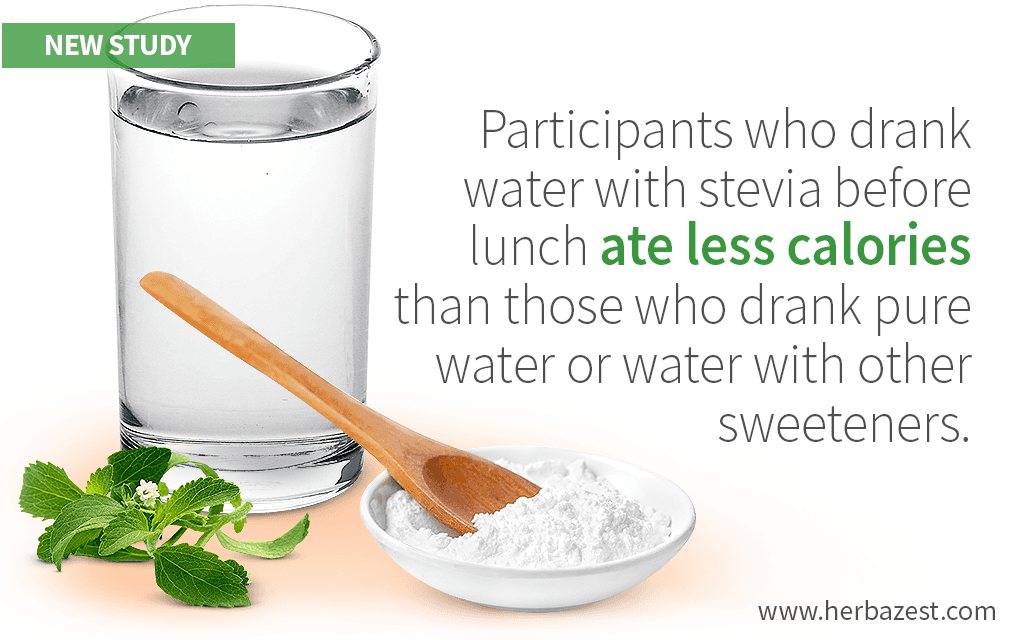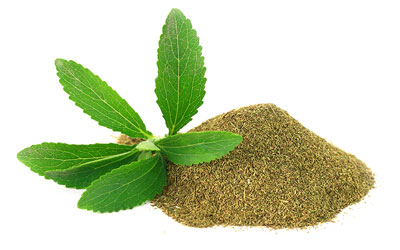Previous studies have demonstrated that stevia is a healthier option for diabetics than artificial sweeteners. It's mainly because it has zero calories and does not affect blood glucose levels. However, little is known about stevia's effects on appetite and food intake as well as its potential benefits for weight management.
The Study
There were 20 healthy adults participating in this clinical trial, which was conducted at the University of Manchester in Manchester, UK. The participants were between the ages of 18 and 40 and had a normal body mass index (BMI).
The study consisted of all participants drinking five different beverages on five different days in random order:
- 330 mL of water (non-sweet, non-caloric)
- 330 mL of water with 240 ppm of stevia (sweet, non-caloric)
- 330 mL of water with 40 g of glucose (sweet, caloric)
- 330 mL of water with 40 g of sucrose (sweeter than glucose, caloric)
- 330 mL of water with 40 g of maltodextrin (non-sweet, caloric)
Thirty minutes after drinking their assigned beverage, participants were given an ad libitum lunch, which means they were told to eat until they are full.
Researchers measured subjective appetite ratings, energy intakes, and blood glucose levels. They shared their findings in the 2020 edition of The Journal of Nutrition.
The Results
Drinking glucose, sucrose, and maltodextrin beverages led to a significant increase in blood glucose concentrations, unlike the consumption of plain water or water with stevia, which did not have any effects on blood glucose levels.
The energy intake following plain water consumption was substantially higher in comparison to all other beverages. An analysis of the total energy intake - including the beverage and the lunch meal - has shown that drinking stevia-sweetened water led to lower calorie consumption.
After drinking sweetened beverages, participants reported feeling less hungry and fuller. Their desire to eat was also lower than after drinking water.
What Does this Mean?
The results of this trial show that drinking water with stevia may help reduce short-term appetite and total energy intake.
Researchers propose various explanations for these findings, including the fact that sweetness itself can have an impact on later food intake. Since it's naturally sweet and contains zero calories, stevia could be an easy and inexpensive way to control food intake and manage weight.
While these discoveries are promising, more studies are needed to further explore potential benefits of stevia for appetite regulation and weight management.
Other herbs that may help keep you full for longer include chickpeas, lentils, beans, and oats.
Sources
- The Journal of Nutrition, Stevia Beverage Consumption prior to Lunch Reduces Appetite and Total Energy Intake without Affecting Glycemia or Attentional Bias to Food Cues: A Double-Blind Randomized Controlled Trial in Healthy Adults, 2020
Footnotes:
- Avicenna Journal of Phytomedicine. (2020). Effects of stevia on glycemic and lipid profile of type 2 diabetic patients: A randomized controlled trial. Retrieved March 4, 2023, from https://www.ncbi.nlm.nih.gov/pmc/articles/PMC7103435/







